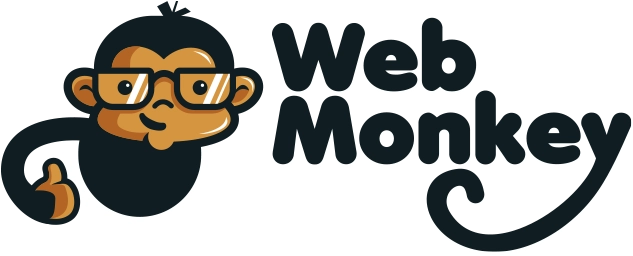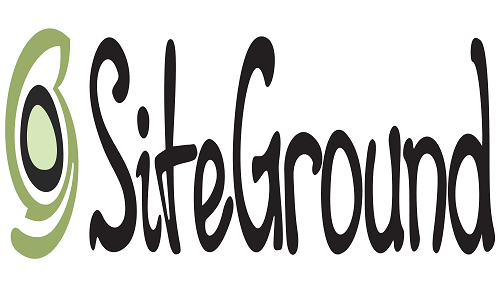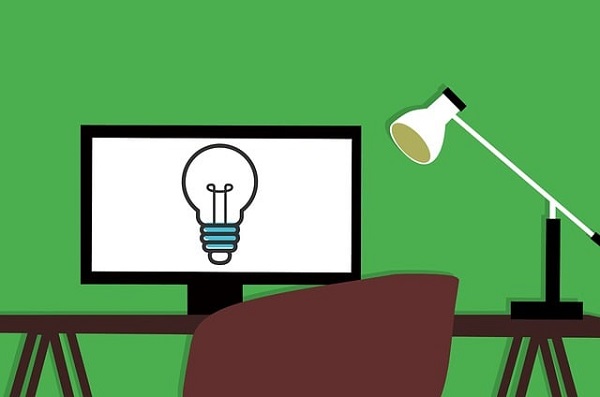Blog vs Podcast – Which One Should You Start?
I've been blogging for the last four years, and these days, WebMonkey is basically my full-time job.
I also have friends who have been running different podcasts over the last few years, and have even spoken on a few shows.
Both platforms provide incredible opportunities for making money online, growing an audience, and even landing a new career.
However, when it comes to the blog vs podcast debate, it can be difficult to know which option is best for you.
That's why this post is breaking down the difference between blogs and podcasts, how you make money with each platform, and what factors determine which route is right for you.
Blogging vs Podcasts – Which Option Is Best For You?
Blogs have been around pretty much since the Internet began.
In contrast, starting a podcast is a newer trend that's developed in recent years.
Interestingly, if you look at interest-over-time for blogging vs podcasting, you see that both mediums now have a similar level of interest.
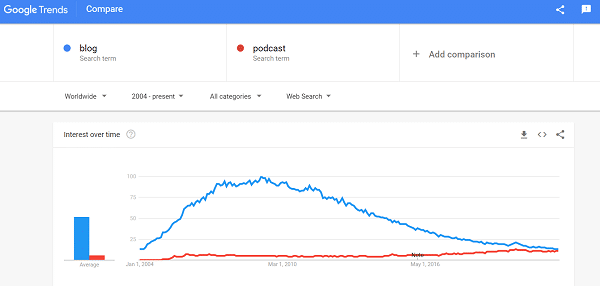
In short, blogging is slightly less popular these days than back in the early 2000's. Similarly, more people want to start a podcast than ever before.
However, it's important to consider different factors before choosing between starting a blog or podcast.
After all, if you want this side hustle to be a success, you need to play to your strengths and pick the right platform for your brand and goals.
Skills You Need
The first consideration in choosing between podcasts vs blogs is the skills you need to launch either one.
You can always learn new skills of course, but blogging and podcasts definitely require different types of creative skills.
Blogging Skills
I've been blogging since 2018, and let me tell you, blogging definitely has a learning curve.
For starters, launching a blog on WordPress, the best content management system for blogging, requires a bit of technical know-how and some patience.
You can always hire someone to set up your blog for you off of Fiverr, but at the end of the day, WordPress is a blogging skill you're going to learn at some point.
But really, the two main skills you need to succeed with a blog are writing skills and search engine optimization (SEO) knowledge.
Written content is the foundation of a blog, so if you have a knack for writing, blogging definitely makes more sense than podcasting.
For context, I usually write 2,000 words of content per day for WebMonkey, plus another 1,500 to 3,000 for freelance writing clients.
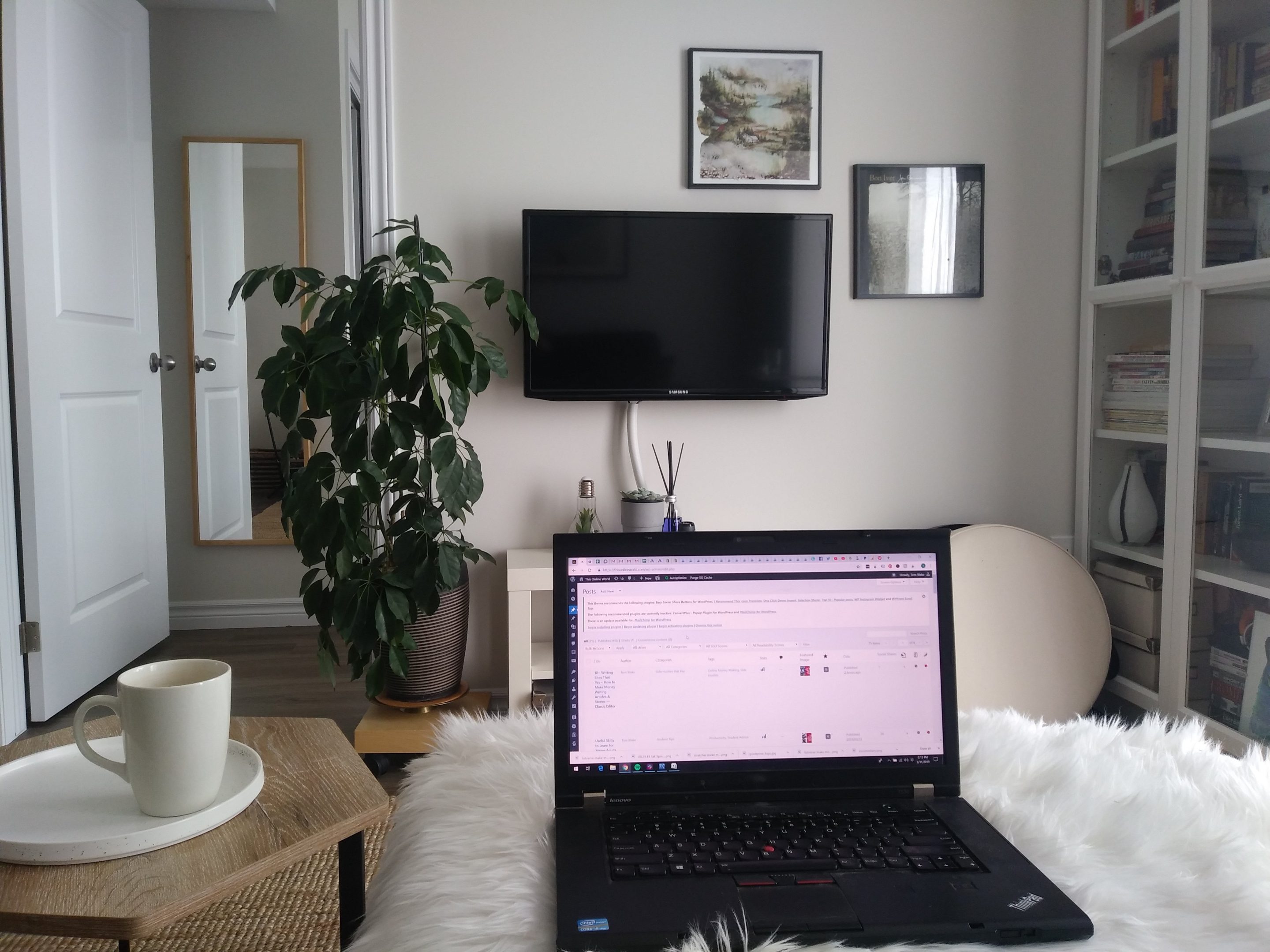
Granted, writing skill and writing at volume are two muscles you develop over time, but you should definitely enjoy writing if you want to start a blog.
And in terms of learning SEO, there's a wealth of resources online that teach you how to find different blogging niches and topics to write about.
Podcast Skills
One similarity between blogs and podcasts is that you're basically telling a story with your content.
However, since a podcast involves audio and is often recorded live with guests, you need to have great communication skills to run a successful podcast.
This also means knowing how to interview guests, spur additional discussion, and how to listen as well.
And this is definitely a soft skill that's easier said than done.
I mean, if you look at the largest podcast in the world, Joe Rogan's podcast, you see that he's able to interview guests from all walks of life and industries.
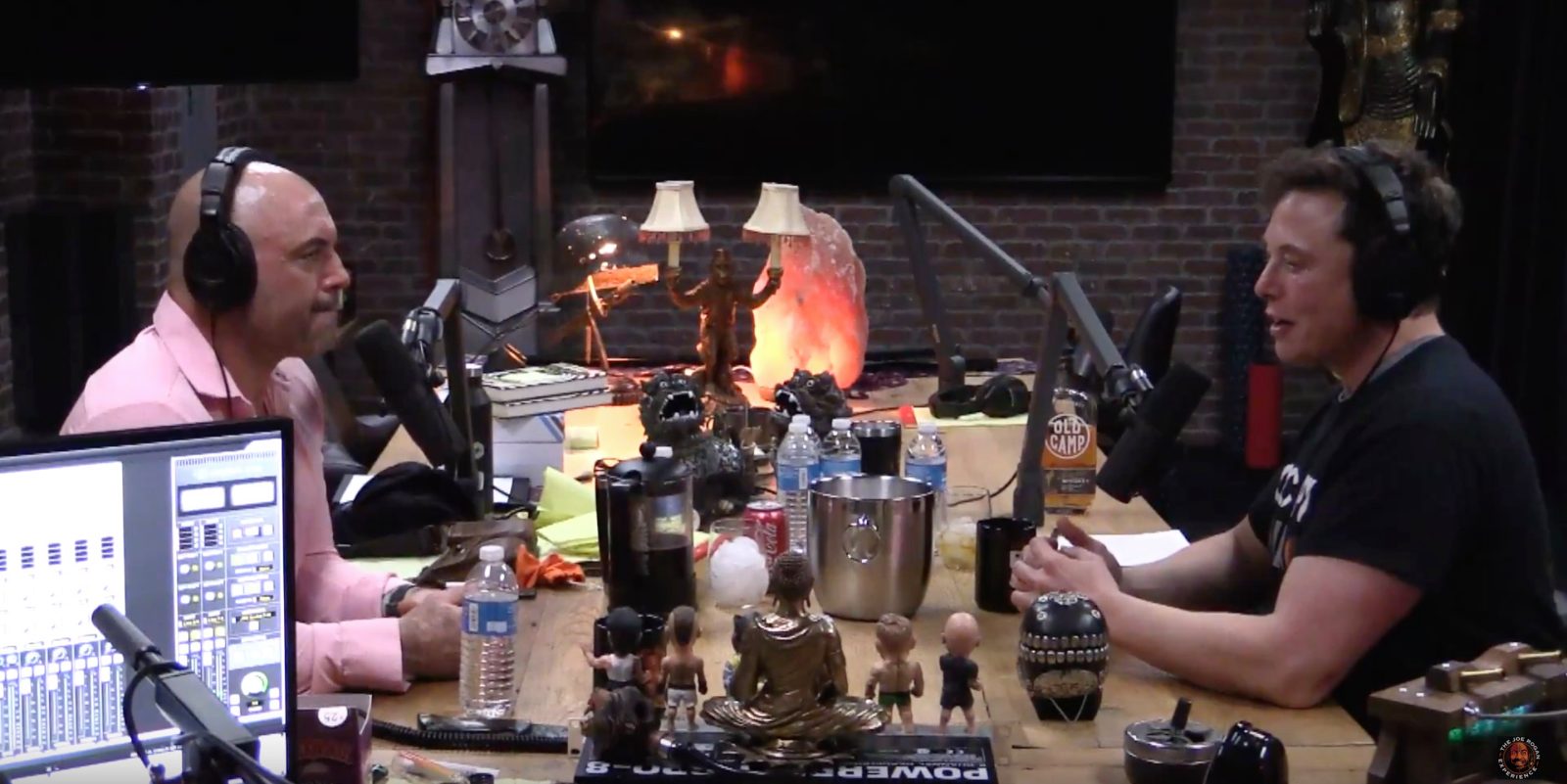
Aside from this skill, a successful podcast host knows how to record crisp audio.
Again, this is something you can learn online, but if you're a bit of an audiophile and like tech, starting a podcast instead of a blog could be the right choice.
The Verdict: You need very different skills for blogging versus podcasting, but both require excellent communication abilities and hard work.
Blog vs Podcast Income
Alright, time to get into the most interesting aspect of starting a blog vs podcast: the income potential.
It's possible to make millions of dollars with a blog or podcast, and you can turn either platform into a full-time job or decent passive side hustle.
That said, making money with a blog or podcast is quite different, so let's break down the potential revenue streams.
Blogging Income
I started blogging in 2018. After my first year, I made abou $1,700 in revenue.
Fast forward a few years, and WebMonkey made $92,000 in 2021.
Blogging has an incredibly high income ceiling as long as you can grow your website traffic and attract enough readers (more on that later.)
This is largely because there are many different ways to monetize a blog:
- Running advertisements with companies like Mediavine and Monumetric
- Affiliate marketing
- Selling sponsored posts
- Selling online courses or physical products
- Offering online coaching
For WebMonkey, Mediavine ad income and affiliate revenue make up the bulk of my revenue.
In fact, with Mediavine alone, WebMonkey can make $400 a day or so, and this is largely passive income at this point!
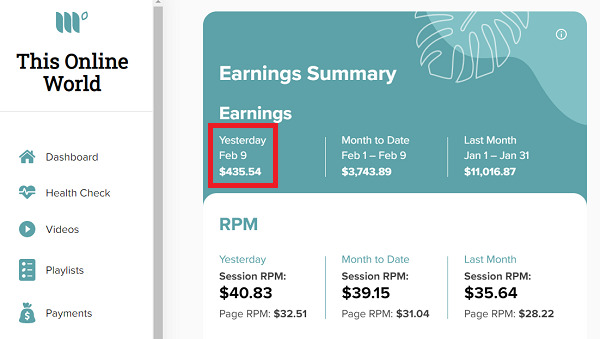
Granted, it takes a while to meet Mediavine's requirements, but it's well worth the reward.
The bottom line is that blogging has so many creative ways to make money, and this is definitely one advantage over starting a podcast as we're about to explore.
Podcast Income
One of the main differences between blogs vs podcasts is that podcasts have more limitations when it comes to making money.
Podcasts typically make money in two ways:
- Selling advertisement slots during portions of episodes
- Affiliate marketing by giving listeners unique referral codes to different products and services
The main challenge here is that you need a lot of listeners to get advertising offers or affiliate marketing deals.
In contrast, you can make $100 a month with a blog or more pretty easily just by growing some basic traffic and enabling Google AdSense.
Granted, podcasts typically pay more per viewer than platforms like YouTube or blogs because listeners are so dedicated and high-value.
However, when you're starting out, don't expect to make money fast with a podcast.
That said, podcast monetization is getting slightly easier because podcast hosts are helping hosts with more monetization tools.
For example, Buzzsprout, one of the best podcast hosts out there, has a free affiliate marketplace where hosts can find offers to plug into their show.
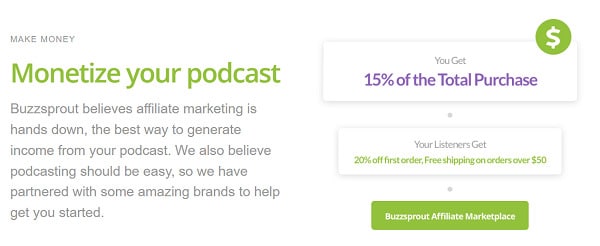
The Verdict: Monetization is one massive difference in the blog vs podcast debate, and the edge goes to blogging here.
Startup Costs
One more factor you should think about when choosing to start a blog or podcast is the startup costs for each platform.
Thankfully, you can launch a podcast or blog without spending a fortune.
However, it's still important to have some realistic expectations for initial and ongoing business expenses.
Blogging Costs
There's a common misconception that you need to spend thousands of dollars to start a successful blog.
In reality, you can launch and grow a blog into a business and only spend around $150 to $250.
Here are the main blogging costs you should expect when starting out:
- Domain Name: You need your own domain name to start a blog, but you can often find domains for $9 to $20 per year.
- WordPress Theme: You can buy a sleek WordPress theme from Theme Forest for around $30 to $75 depending on how you want your blog to look like.
- Blog Hosting: You need to host your own blog with WordPress, and I recommend SiteGround for beginner bloggers. This normally costs around $5 to $8 per month for your first year and is more than enough to grow your blog into an income source.
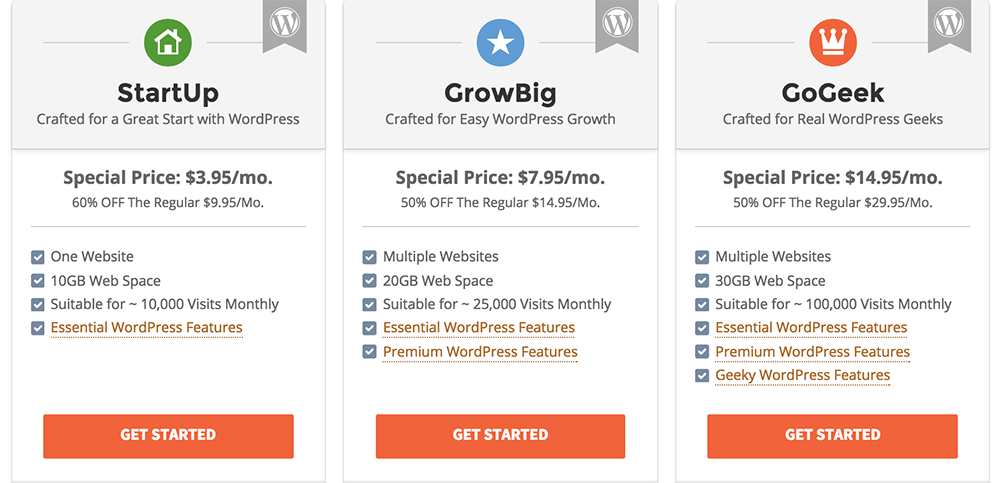 These were basically my blogging expenses for the first year or two, during which time WebMonkey grew to over 30,000 readers per month.
These were basically my blogging expenses for the first year or two, during which time WebMonkey grew to over 30,000 readers per month.
After a while, I invested in a blog redesign and also reinvested earnings from my blog into outsourcing writing.
However, at its core, you can likely launch a blog for around $150 to $250.
Start your own blog with SiteGround today!
Podcast Costs
Like blogging, the great news about starting a podcast is that you don't need to spend thousands of dollars.
The main ongoing cost for a podcast is your podcast host subscription.
A podcast host helps you host your podcast online similarly to blog hosting. It also lets you list your podcast on popular streaming platforms like Spotify and Apple Podcasts.
You definitely need a podcast host to start a podcast.
However, you don't have to spend money while you get up and running or even that much per month once you're growing your show.
For example, Buzzsprout has a free plan so you can launch your podcast as a trial run.
Afterwards, Buzzsprout paid plans start at $12 per month which is pretty similar to a lot of blog hosting plans.
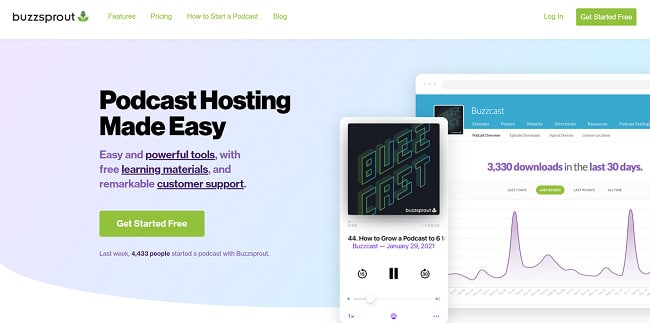
Plus, Buzzsprout gives new podcasts hosts a free $20 Amazon gift card after trying out a paid plan, which is a nice sign-up bonus.
As for other podcast costs, you're mostly looking at equipment and tech costs to actually host your show.
Here are some expenses you should expect:
- A quality podcast microphone like the Rode NT-USB Studio Quality Microphone: Around $160
- Potential sound-proofing acoustic panels if you’re building a small podcast studio: Around $50
You also need some sort of editing software for your show, but many people use free editing software or something affordable like Wondershare Filmora.
The Verdict: Podcasts and blogs have similar startup costs.
Growing Your Audience
One final factor to consider in the podcast vs blog breakdown is how difficult it is to grow an audience.
The size of your audience is largely what determines how much money you make, as well as how effectively you monetize your audience.
And on this front, I think blogging has some serious advantages to podcasting that are worth noting.
Growing A Blog
I grew WebMonkey from 0 to 400,000 monthly readers in four years.
It took a lot of trial and error, setbacks, and patience. However, I've found that growing blogging traffic is really formulaic and just a matter of learning SEO and creating great content.
This is because writing great content that targets low-competition keywords is a realistic way to build your online blogging audience over time.
Granted, this process takes months or years, but it's very much a “slow and steady wins the race” sort of approach.
And you don't have to be an SEO guru to figure this stuff out.
I mean, there are plenty of free SEO keyword research tools out there. You can also try premium tools as well to take things to the next level.
One SEO tool that was a massive difference maker for me is SEMRush.
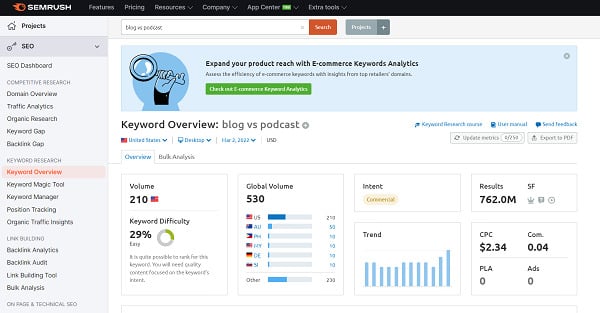
SEMRush helps me find low-competition keywords that I know I can rank for on Google.
So, I essentially make a content roadmap of 50-100+ blog posts, write them over a few months, and then promote them on social media and wait for Google traffic to trickle in.
Of course, the writing part of this still takes a lot of work and consistency. Furthermore, it takes time for a new blog to get noticed on Google and to attract backlinks from other sites.
However, if you like a formulaic approach to building an online business, blogging is definitely for you.
And again, tools like SEMRush can dramatically speed up your progress here, and it's definitely one research tool I wish I started using much earlier on in my blogging career.
If you're wondering how to use SEMRush and if it's worth it, you can also check out my review video above!
Growing A Podcast
I have several friends who run podcasts. And unfortunately, many of their podcasts aren't running anymore or have been put on the backburner for the foreseeable future.
In my opinion, growing a podcast following is much more difficult than growing a blog.
This is largely because the top podcasts in each niche dominate most of the audience; I mean, how many podcasts can you have about history before the top 10 podcasts capture everyone's attention?
There's also way less opportunity for things like SEO or keyword research with growing your podcast.
Really, successful podcasts grow through word of mouth, social media marketing, and by having awesome guests who share captivating stories.
So, if you're very passionate about a certain niche or have an interesting network of people who could be guests, podcasting is definitely worth considering.
But if you're looking for quick wins and a more formulaic approach to growing your show, know that podcasting is quite hard.
The Verdict: Growing a blogging audience is easier than growing a podcasting audience.
Extra Reading – Podcast vs YouTube – Which Option Is Best?
Pros And Cons Of Blogs Vs Podcasts
Now that you know some of the main differences between starting a blog or podcast, here are some pros and cons for each medium you should consider.
Blogging Pros And Cons
Blogging Pros:
- Very low start-up costs
- More monetization options than a podcast
- Easier to grow and audience than a podcast
- It's easier to sell your blog down the line than it is to sell a podcast
Blogging Cons:
- WordPress has a pretty steep learning curve
- You need to handle your own tech (like blog hosting, security, and backups)
Podcast Pros And Cons
Podcast Pros:
- Podcast subscribers are some of the highest-value subscribers possible
- Podcasts typically pay the most for sponsored ads
- You get to expand your professional network by chatting with interesting guests
Podcast Cons:
- Podcasts have fewer monetization options than blogging
- It's harder to grow a podcast following than it is to grow a blog
- Learning how to record crisp audio takes some practice and cost
Which Option Is Best?
It can be difficult to choose between starting a podcast or blog because both platforms have so much potential and can be incredibly enjoyable.
However, I think it's important to play to your strengths and to also not stretch yourself too thinly.
For example, I was blogging for about 2 years before I started making money on YouTube, and this is because it takes time to get an online business up and running.
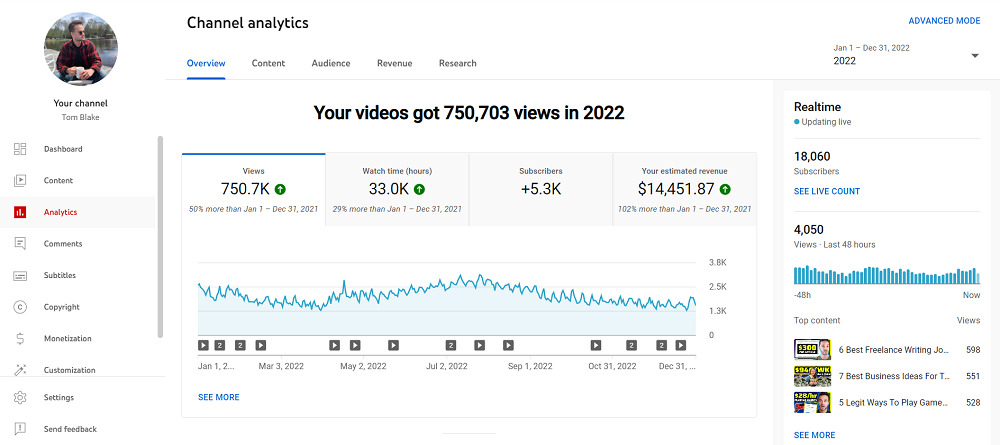
So, if you have limited bandwidth, I suggest picking one or the other and not launching both.
That said, here's how you can decide if blogging or podcasting is right for you:
Choose blogging if you:
- Enjoy writing
- Want to learn how to run a WordPress site
- Aren't afraid of technical challenges
Choose podcasting if you:
- Love chatting with people and hearing their stories
- Aren't interested in making money quickly
- Have an interesting network or social media following where you can find guests for your show
Extra Reading – 20+ Best Jobs That Pay $5,000 A Month.
Frequently Asked Questions
What's The Difference Between A Podcast And A Blog?
A podcast is an audio-based show where a host discusses a topic by themselves or with guests for their listeners. In contrast, blogging uses written and visual content to explain concepts or share stories with readers.
What's The Difference Between Audio Blog vs Podcast?
An audio blog involves turning a written blog post into an audio file. Many bloggers do this and convert written posts into MP3 files. This basically turns a blog post into a podcast episode and lets readers enjoy blog content in audio format.
Final Thoughts
I hope our blog vs podcast breakdown helps you decide which online platform is right for your income goals and business.
Again, both blogging and podcasts have incredibly high income potential, and you can turn either platform into a serious income source. My final advice is to just play to your strengths and to pick what interests you the most so you can stay excited and avoid burnout.
Best of luck!
Launch your own podcast with Buzzsprout or start a blog with SiteGround today!
Looking for other ways to make money? Checkout:
